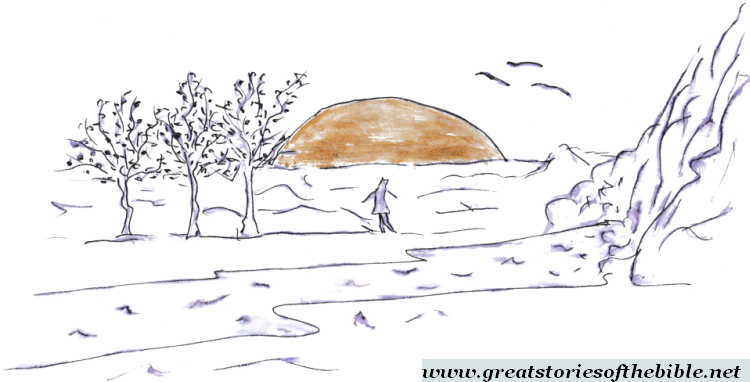Wisdom of Ben Sira
Let your tabernacle be in Jacob
Here is part of the prologue to the Wisdom of Ben Sira, which gives us an idea of its contents and the reason for its translation in Greek (we don’t have the entire original book in Hebrew): «since not only the readers must needs become skilful themselves, but also those who love learning must be able to profit those who are without it, both by speaking and writing, my grandfather Jesus, having much given himself to the reading of the law, and the prophets, and the other books of our fathers, and having gained great familiarity therein, was himself drawn to write on matters pertaining to instruction and wisdom, in order that those who love learning, and are addicted to these things, might make progress much more by living according to the law. [...] Having come to Egypt in the thirty-eighth year of Energetes the king [132 BC], and having continued there some time, I found a copy affording no small instruction. I thought it therefore most necessary for me to apply some diligence and travail to interpret this book; applying indeed much watchfulness and skill in that space of time to bring the book to an end, and set it forth for them also, who in the land of their sojourning are desirous to learn, fashioning their manners beforehand, so as to live according to the law».
Ben Sira suggests an identification between Tȏrāh (“Instruction”, the law of the Lord) and Wisdom, so that she no longer remains to the mere level of creation (see Introduction), but she matches the Revelation received by Israel. «Then the Creator of all things gave me a commandment; and he that created me made my tabernacle to rest, and said, Let your tabernacle be in Jacob, and your inheritance in Israel. He created me from the beginning before the world; and to the end I will not fail» (Sir 24,8-9). Wisdom is here personified as in Proverbs 8 (which we have already read: see Introduction and Proverbs) and compared to lush and precious plants, to their fruits, to food and drink (Sir 24,12-20).

This metaphor conveys the idea of the Wisdom’s powerful fertility and of the support and nurturing she gives to those who assimilate her. The image is confirmed and reinforced by quoting the four rivers of Eden (see Gen 2,11-14) plus the Jordan and the Nile (Sir 24,23-25). The wise man is a channel that draws on the waters of Wisdom and, by grace, grows up to be the bearer of God’s message («prophecy»): «And, behold, my stream became a river, and my river became a sea. I will yet bring instruction to light as the morning, and will make these things to shine forth afar off. I will yet pour out doctrine as prophecy, and leave it to generations of ages. Behold that I have not laboured for myself only, but for all those who diligently seek her» (Sir 24,31-34).
The Evangelist John gives Sir 24 a new interpretation: Jesus Christ himself is the eternal Wisdom of God who “pitched his tent among us” (see John 1,14).